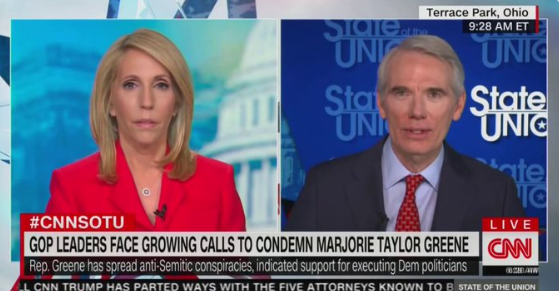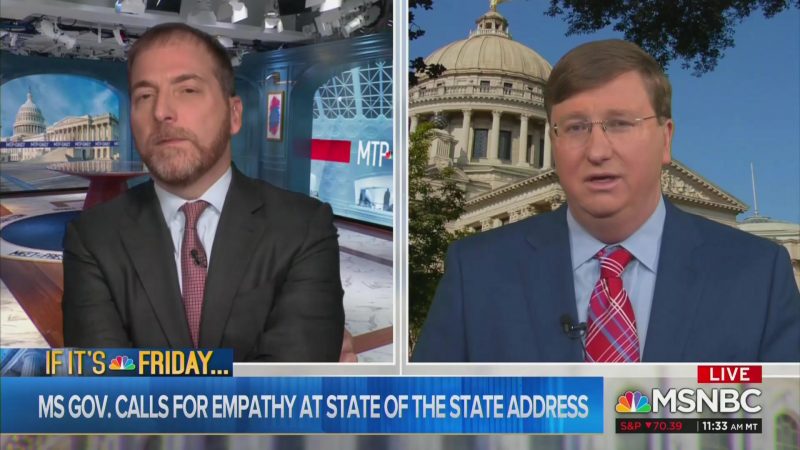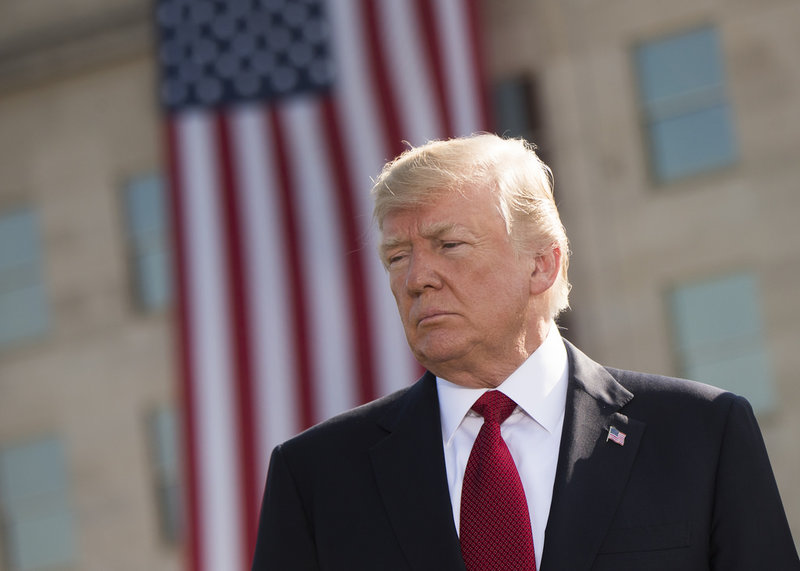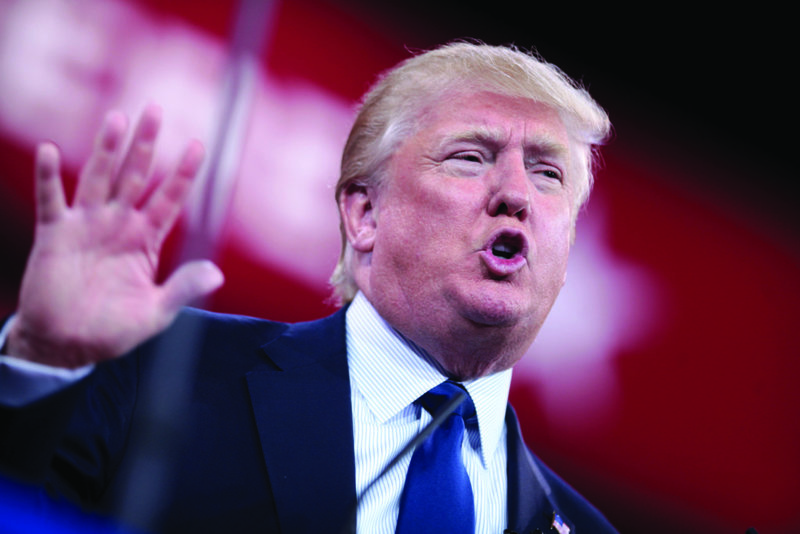Why ‘America First’ Is A Hoax, A Scam, And Economic Hubris
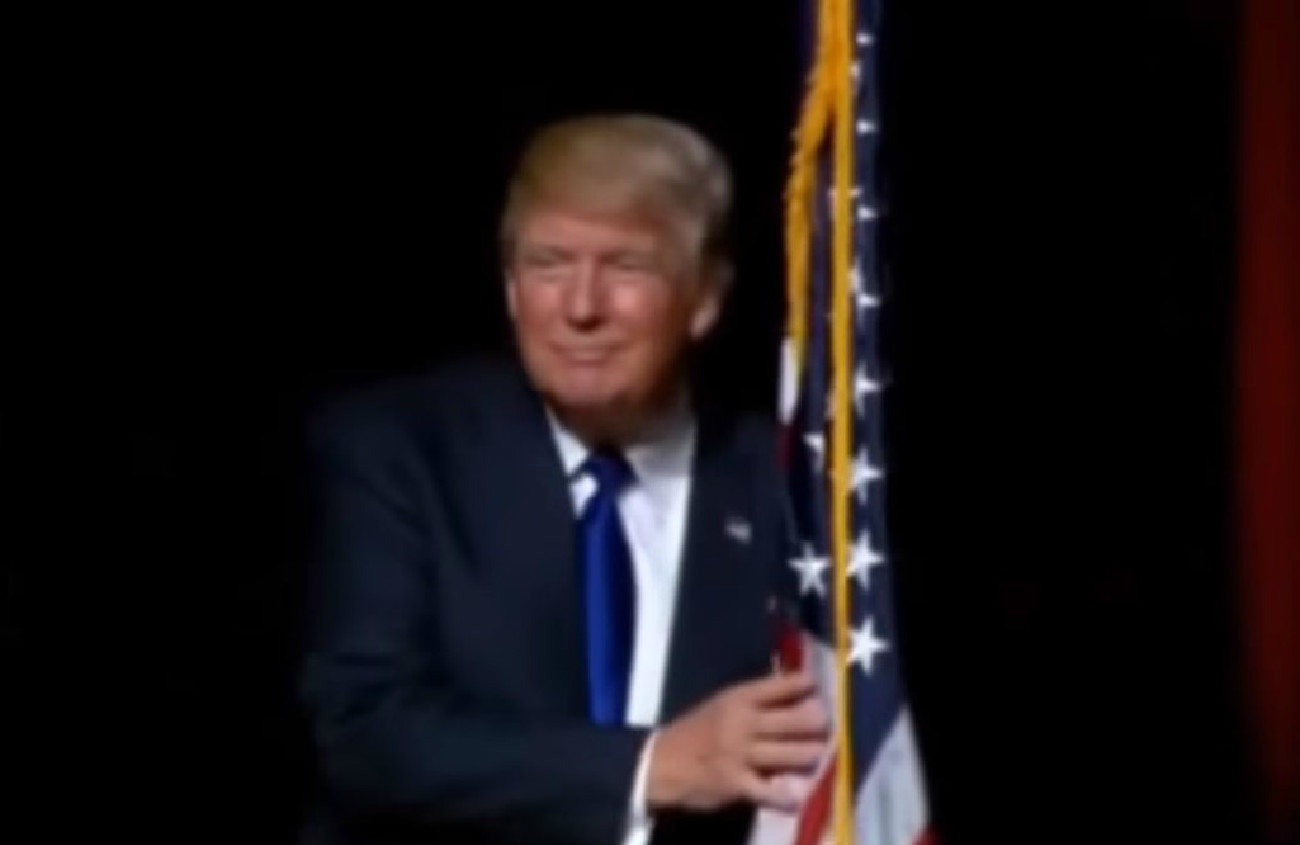
Donald Trump likely just started a trade war with a 25% tariff on foreign steel and 10% on foreign aluminum, and foreign countries are already threatening to retaliate against American industries. The European Union, in response, has threatened key companies in the home states of both Mitch McConnell and Paul Ryan—bourbon and Harley-Davidson, respectively—to drive home the point that Republican leadership in Congress should not allow Trump to end the era of free trade. However, we can’t say we didn’t see this coming.
While running for President, Donald Trump exhaustively talked about putting “America First” (as if previous presidents didn’t) and listed many examples of how America was supposedly getting shafted by other countries, such as Mexico, for example. Aside from his absurd claim that the government of Mexico was sending only their rapists and “bad hombres” to America, he was adamant that Mexico was stealing US jobs and that free trade agreements like NAFTA were terrible for America.
But is he right? Are free trade and NAFTA objectively bad for America? Trade with Canada and Mexico through NAFTA supports some 14 million American jobs and the generation of around $1.3 trillion annually. Meanwhile, Canada and Mexico are our number two and three biggest trading partners — making up over 29% of our total foreign trade — and they buy about 34% of all American exports. While some have claimed that upwards of 700,000 manufacturing jobs have been lost due to NAFTA, other studies show that over 85% of these losses were the result of automation, not Mexicans. Additionally, a Congressional Research Service report found that NAFTA has added about $80 billion to the US economy, and increased trade with Canada and Mexico from $337 billion to $1.2 trillion. It is also likely that NAFTA helped US firms better compete against China, which prevented more manufacturing jobs from moving there in the last 24 years.
While the US does run somewhere around a $54 billion trade deficit with Mexico, does it matter? American firms benefit from easier access to more capital, more resources, and a bigger market with fewer trade barriers, and all Americans benefit from the greater variety of cheaper goods and services that come with free trade. The mercantilist idea of hoarding national wealth in a zero-sum struggle to beat other countries has long been debunked by simple math. So Trump is simply wrong about NAFTA and trade with Mexico, and, ironically, Trump’s anti-Mexican bluster has helped drive down the value of the Mexican Peso, which will continue to make Mexican goods more competitive against American goods. Also ironic, NAFTA was partly designed to modernize and integrate Mexico’s economy with the US and Canada to boost the Mexican standard of living and dissuade Mexicans from feeling it necessary to illegally immigrate here, so Trump’s opposition to NAFTA is a little self-defeating given his hardline stance on immigration.
Another problem with Trump’s “America First” branding is the idea that manufacturing workers can actually be saved by a genius businessman able to renegotiate trade deals and reverse decades of liberalized trade.
First off, trade deals involve hundreds of very intelligent business experts and policy wonks spending months and even years working together in big conference meetings negotiating thousands of individual economic (and political) issues into something capable of being passed by each countries’ respective governments… something Trump’s known lack of attention span and general ignorance on all things policy would probably impede. Of course, this might be a problem for any president whose office simply precludes having enough time to spend on any single issue like a bilateral trade deal, let alone a massive overhaul of an entire continent’s trading system, no matter how much “executive time” is put into their daily schedule.
Trade deals are extremely difficult politically because every change in economic policy inherently picks some winners and losers. Even if Trump could somehow orchestrate a rehabilitation of the American manufacturing sector, what would he be trading for in its place? Since labor-intensive manufacturing has been getting weaker in America for decades, any trade deal to expand it would almost certainly involve crippling some other sector of the American economy and some other group of Americans. And, of course, for any country dealing with Trump, his endless scandal machine of an administration and his unpopularity here at home might question his ability to deliver a deal no matter how sweet. Abroad, it is not difficult to imagine Trump finding it impossible to deal with foreign countries who already have a largely negative opinion of him, and who would likely think it abrasive when Trump took to Twitter to boast of screwing over the rest of the world “bigly” with his “America First” deals.
The next problem for the America First agenda of trying to bring back a 1950s-esque economy dominated by manufacturing is the World Trade Organization (WTO), which exists to knock down trade barriers and promote free trade. The WTO is a particularly thorny obstacle to the America First strategy that Trump envisions given America had a major role in creating it to benefit American workers and then in promoting it around the world. Far from being some kind of big, liberal bully keeping the American manufacturing class down, the WTO (along with the General Agreement on Trade and Tariffs (GATT) that preceded it) was an American response to the tariff wars that helped lead to and exacerbated the Great Depression, as well as the fascist attempts at dirigisme and economic autarky prior to and during World War II. The WTO also spent several decades encouraging countries to turn away from whole economic systems hostile to American manufacturing like the attempts at communist-planned economies and the import substitution industrialization (ISI) trend that was once popular throughout the developing world.
The WTO is also a problem for the America First crowd because it institutionally operates under the principles of non-discrimination and reciprocity, which work beautifully at preventing international trade wars. The principle of non-discrimination gives all WTO member nations “most favored nation” (MFN) status, and therefore requires America to treat every country in the WTO the same. Of course while the WTO allows exceptions for making special agreements with developing countries and for setting up regional trading blocks, it is unlikely that Trump would want to give some kind of altruistic preferential trade deal to help a “shit-hole” country, and of course Trump is already against America’s existing regional trade agreements (like NAFTA and the Trans-Pacific Partnership he killed). Under MFN, any special bilateral trade terms with another country would then have to be given to all other WTO members.
The second important principle is reciprocity, which acts as a tit-for-tat mechanism. Reciprocity means that if America did make a special trade deal with, say, Canada, and then refused to give the same benefits to Mexico, the Mexican government would be allowed to economically retaliate against the United States and either request some other economic concession as compensation or demand the nullification of the Canadian deal. This kind of sours the idea that Trump should arbitrarily put higher tariffs on foreign goods because every affected country could fight back with their own counter-tariffs. This could very easily allow foreign governments hijacking our democracy if other nations chose to methodically target with tariffs industries in individual Congress members’ districts to blatantly and legally attempt to sway American policy. Imagine foreign corporations and governments trying to sway Florida voters toward a specific candidate in a presidential election by threatening the citrus industry with huge tariffs.
Now, of course, Trump could always try and pull America out of our existing trade deals or the WTO, but if he did, our economy would almost certainly go into a major recession and/or depression. America is the largest exporter of services in the world with over 300,000 businesses and millions of workers dependent on international trade in some way. While the US has a giant domestic economy, America’s dominant multinational corporations are obviously all dependent on the free flow of goods, services, and capital around the world, which the WTO actively promotes, regulates, and protects. The economic uncertainty alone would almost certainly ruin investor confidence and wreck the stock market, causing Americans’ pensions and investments to crash. Also, by leaving the WTO, we would be rescinding our “most favored nation” status with other countries which could threaten entire industries of our economy as special economic interests in other countries would almost certainly begin lobbying their governments to give them “unfair” advantages over certain American exports. While America would obviously renegotiate MFN status with the countries we trade with…we would at that point simply be spending time and money recreating what the WTO already does, and likely suffer economic and politically targeted trade barriers from other countries.
America could then retaliate against any country that put up new trade barriers against us, but how would it be worth the time and money it would take trying to essentially recreate what we already have with the free-trade policies we’ve engineered over the last half-century? Also, if the intent is to blatantly protect domestic industries like Trump says he wants to do, we certainly will be retaliated against, and American workers outside of manufacturing will feel the pain. The government would have to spend a significant amount of time and money determining the economic impacts and the comparable economic countermeasures to retaliate with, all the while trying to prevent an outright trade war from spiraling further out of control. Furthermore, how would the President or Congress get anything done outside of fixing these trade disputes? Is the America First crowd okay with drastically increasing the size of the federal government and hiring thousands of new government bureaucrats to renegotiate trade deals all around the world?
In fact, a lot of this work would actually be put on Trump’s plate to sort out, since over the years Congress has delegated much power over trade agreements to the President. Trump would no doubt have to spend all of his executive time and then some working out new trade agreements with each and every individual and group of countries that we trade with, and it would no doubt continue far past his presidency. President Obama, for instance, warned the United Kingdom that it could take up to ten years to re-negotiate trade deals with the US during the UK’s vote to leave the European Union. Consider how long ago the Brexit vote was, and the UK hasn’t even negotiated the actual exit from the Eurozone, let alone renegotiated with random developing nations for the raw resources Britain’s stand-alone economy will need for the future. Most trade deals take dozens of months to work out and to transition from launch to implementation. While some bilateral trade deals have been implemented quickly, they were often deals with countries that were not exactly the most democratic, and therefore were saved from much of the inevitable political back and forth that would take place negotiating with a democracy. Trade deals are much more difficult with industrialized nations.
The fact of the matter is that international free trade and global trade organizations like the WTO have tremendously benefitted America’s economy. Historically speaking, food and goods have almost never been more plentiful or cheaper around the world than right now. Also, standards of living have risen dramatically all over the world thanks to liberalized trade. But why does the “America First” crowd have so many supporters? Obviously, their ideas sound good to the people in rural parts of America where traditional manufacturing used to provide economic well-being, but these are the people who unfortunately happened to work in some of the least competitive sectors of America’s economy. Fundamentally, their labor is just too expensive to compete against the increasing robotic automation of the industrialized world, and too expensive to compete against the developed world’s lower standard of living and its tens of millions of low-wage laborers. This has inevitably caused millions of Americans to lose their jobs and thousands of businesses to have gone bankrupt while they have had to listen to economic and political leaders continually say that this was all for the good of Americans.
But, far from being the selling out of American workers, these economic dislocations were inevitable, and actually could have easily been anticipated. The negative effects of globalization could also have easily been lessened beforehand had we made different political decisions as a country in how we reacted to the changing world economy. Looking toward the future, more Americans will be hurt as the WTO continues to remove the remaining vestiges of countries’ protectionist policies, and more sectors of the American economy are subject to foreign competition, but, again, global trade is not a zero-sum game.
Rather than idealistically fantasizing about the era before free trade and the WTO and an American economy that is never coming back, we should be working to actually do something productive about these economic changes besides imagining tearing down the entire global economic system. It’s important here to note that the reason American manufacturing dominated the world in the 50s and 60s in the first place was simply a fluke. Remember that in those two decades most of the industrialized world was still rebuilding after two massive World Wars, and the rest of the world had only just become independent after a long history of European colonialism and exploitation. In that era, America was anything but “America First.” The Marshall Plan after WWII involved spending the equivalent of $140 billion in today’s money to rebuild Europe in order for Europe to become customers of America’s economy, and it worked spectacularly for both America and Europe.
So the question cannot be “How can we reverse globalization and free trade?” since everyone in the world benefits from it, but rather “How do we help mitigate and alleviate Americans hurt by globalization and free trade?” Fortunately, there are some very simply governmental policies that can easily help, and there is a little group called the Democratic Party that is actually working to help struggling Americans.
Unlike Trump and the Republican Party, the Democrats are for greater access to education, which would save entire American communities handicapped from their labor-intensive jobs moving out of the country. Subsidized or, preferably, free education would help young adults and the unemployed get the training and knowledge necessary to get high-paying jobs available in thriving industries that are competitive internationally. Furthermore, a good education or training programs that are supported by the government would allow graduates to actively pursue new ideas and ventures, and create new businesses that hire additional people without being trapped by excessive debt. The less debt people have, the freer they are and the more money they can save and invest. Far from creating a socialist hellscape, smart education policies would help newly educated entrepreneurs generate higher tax revenue more than enough repay the government for its initial investment in them.
Unlike Trump and Republicans, Democrats want to give more benefits to the unemployed by extending unemployment insurance payments to give them more time to find the right job and help their families survive while they do it. Unlike Republicans, many of whom are in the pocket of oil and coal companies, Democrats support investing in potentially high growth industries like renewable resources and green technology. New industries like these have the potential of creating millions of jobs, creating hundreds of billions of dollars of in revenue and therefore profits and taxes, improving American infrastructure, getting rid of America’s reliance on foreign oil, and more importantly helping America dominate a new and rising economic industry for years to come. Green technology is much more competitive globally than the idea of bringing back long-gone manufacturing jobs. Republicans, on the other hand, cheered when Trump removed America from the Paris Climate Agreement and the guaranteed international market it was creating for green businesses that Americans could have easily exploited. Republicans are literally stealing economic potential from Americans for chump campaign money from industries that are running out of relevance if they haven’t already.
Unlike Trump and Republicans, Democrats want to help those hurt by capitalist globalization. Democrats are for raising taxes on the individuals and corporations that have gained the most from globalization to help alleviate some of the pain felt by those who have lost the most. Surely it is not creating a national socialist hellscape to take a small percentage from those who have gained so much in order to drastically improve the lives of people who have lost out. Republicans, on the other hand, have spent years painting Americans who have been put out of work or who can’t find jobs due to globalization as lazy and occasionally even morally weak. Remember, Republicans just passed a massive tax cut for the richest individuals and businesses in America who did not need it and increased America’s future debt, which will have to be paid for in large part by those “lazy” Americans. Republicans are also using the current debt, which they largely motivated, as an excuse to make massive cuts to welfare programs that benefit struggling American workers. Republican politics and policies cripple the economic future of America’s struggling workers.
All in all, the America First crowd are wrong about the benefits of free trade, wrong about what can be done to help struggling Americans’ situation, wrong about Donald Trump’s ability (politically, institutionally, and probably behaviorally) to help them, and, most critically, they support a political party that borders on outright contempt for their plight. America First supporters simply do not understand how America actually benefits from the international system America itself created, and they have a misguided faith that Donald Trump is somehow personally capable of convincing other countries to go screw themselves in order to “make America great again.” It’s straight up hubris to believe that Donald Trump and the Republican Party can do anything for struggling American workers other than screw them over further.
If you actually want to make America Great again, try voting for Democrats.

